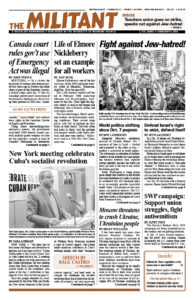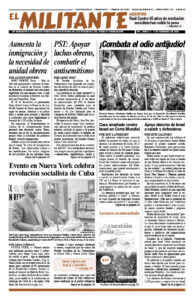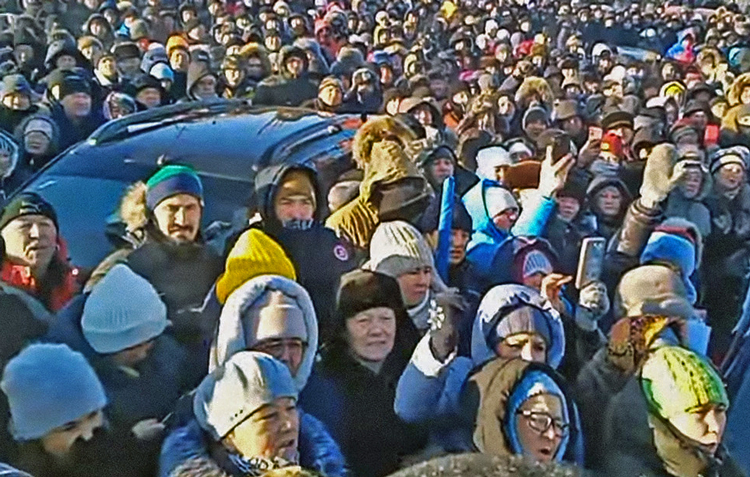In one of the biggest outbreaks of social unrest since Russian President Vladimir Putin invaded Ukraine nearly two years ago, thousands have protested in Baymak, in the Republic of Bashkortostan. Baymak is over 850 miles east of Moscow near Russia’s border with Kazakhstan. On Jan. 17 some 3,000 protested the court’s imprisonment of Fail Alsynov for four years in a penal colony on charges of “inciting ethnic hatred” and discrediting the Russian army.
Alsynov has led calls for greater cultural and economic autonomy for the Bashkirs, a Turkic majority-Muslim people who make up about a third of the region’s 4 million residents. He has also spoken out against Moscow’s war on Ukraine and the Kremlin’s 2022 call-up of conscriptees. He led successful protests in 2020 to prevent mining operations on a hill Bashkirs consider sacred.
Protesters chanted “Freedom!” and demanded the dismissal of Radiy Khabirov, Bashkortostan’s governor, who spearheaded the prosecution of Alsynov. Riot police used batons and tear gas against demonstrators, injuring 20 and making arrests. Protesters defended themselves by pelting the cops with snowballs. About 1,500 protested two days later in the capital, Ufa, where another 10 were arrested.
A disproportionate number of young men from Russia’s oppressed nationalities, like the Bashkirs, are sent to the front and suffer the greatest casualties. About 1,350 Baskir men have been killed so far, more than in the Soviet invasion of Afghanistan in the 1980s or in Moscow’s wars in Chechnya in the 1990s. “This is not our war,” Alsynov said. “Our land has not come under attack.”
The protests reveal deepening national and class divisions caused by Moscow’s war, especially among the 21 ethnic republics across the Russian Federation.


